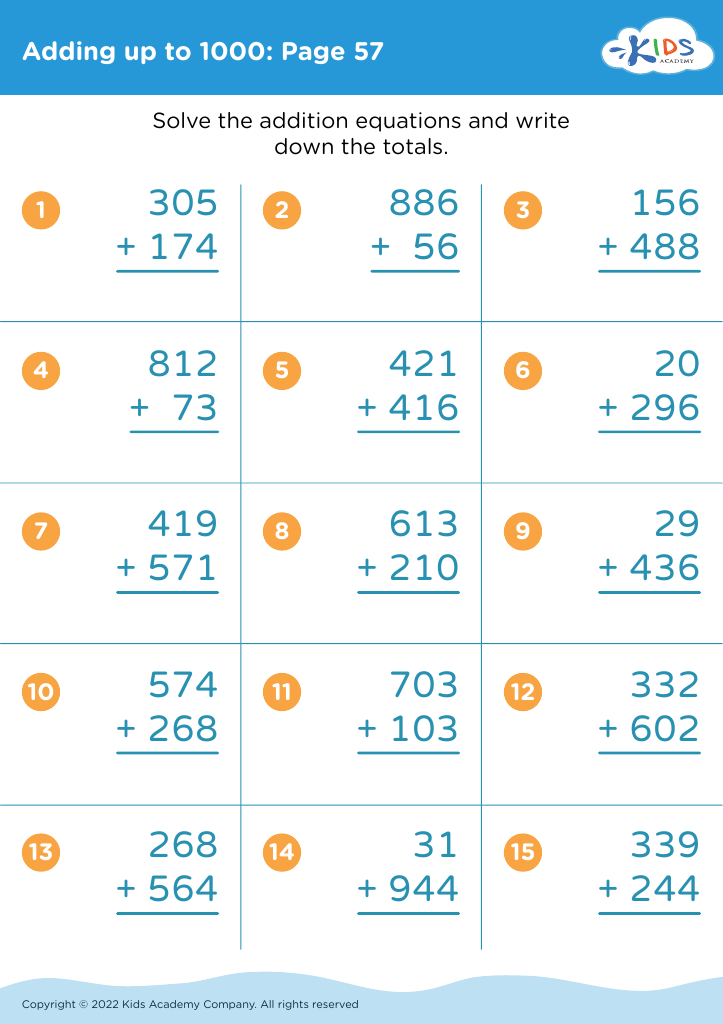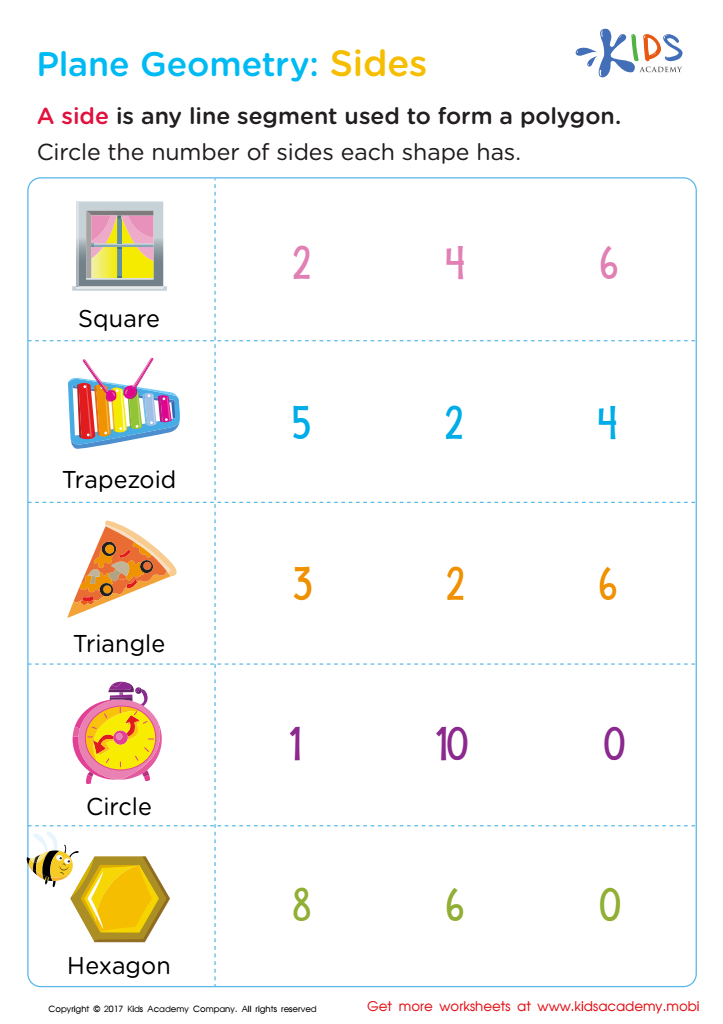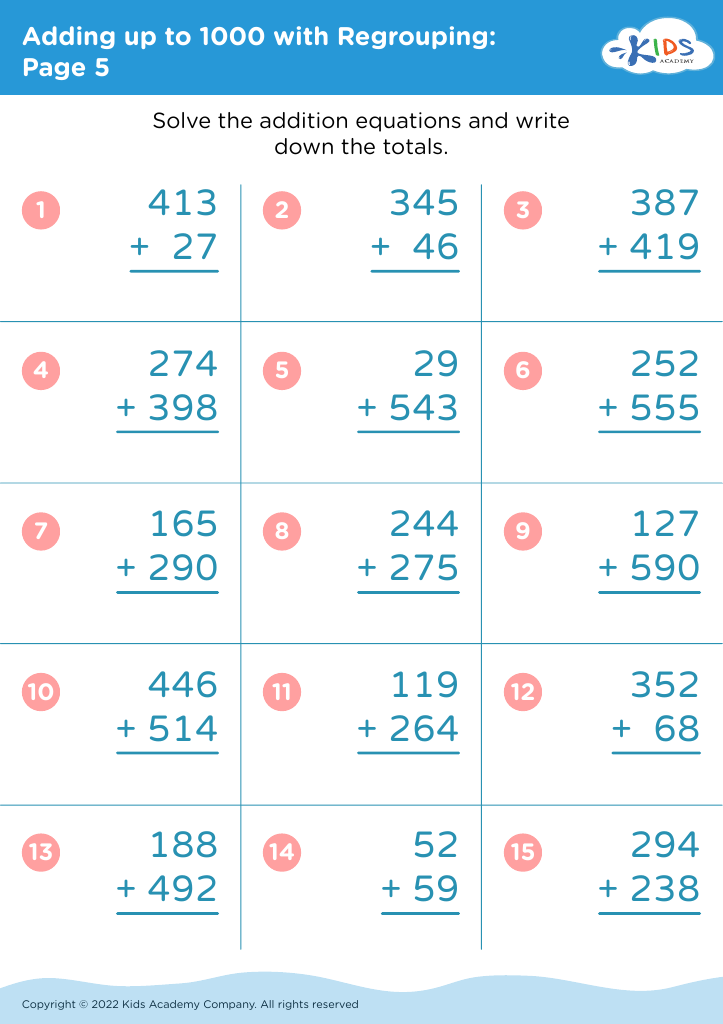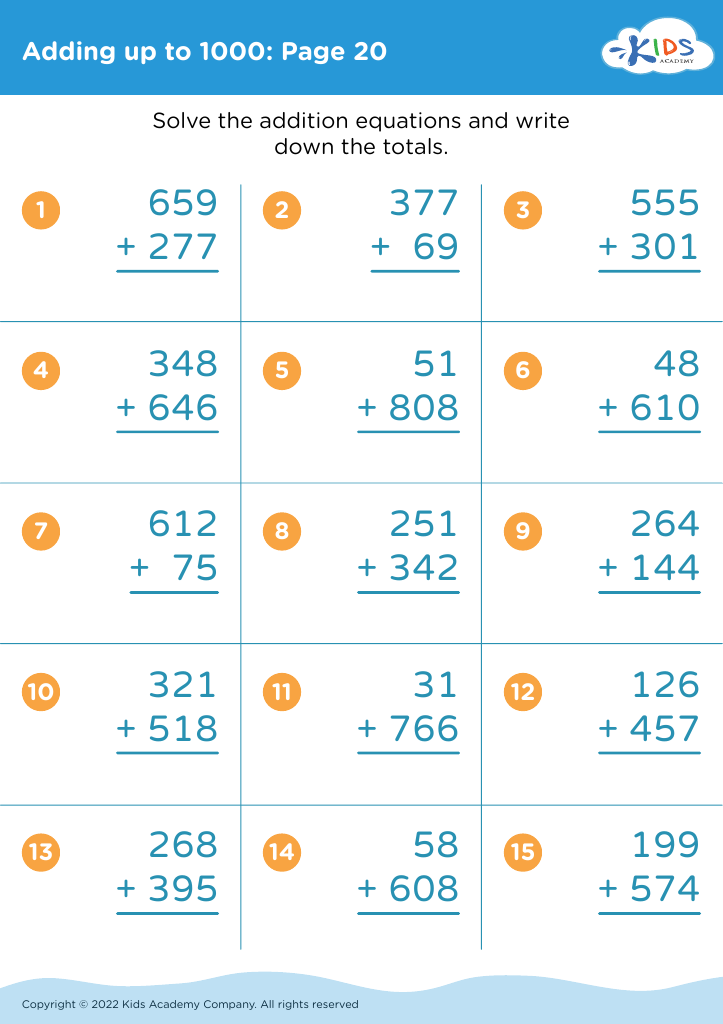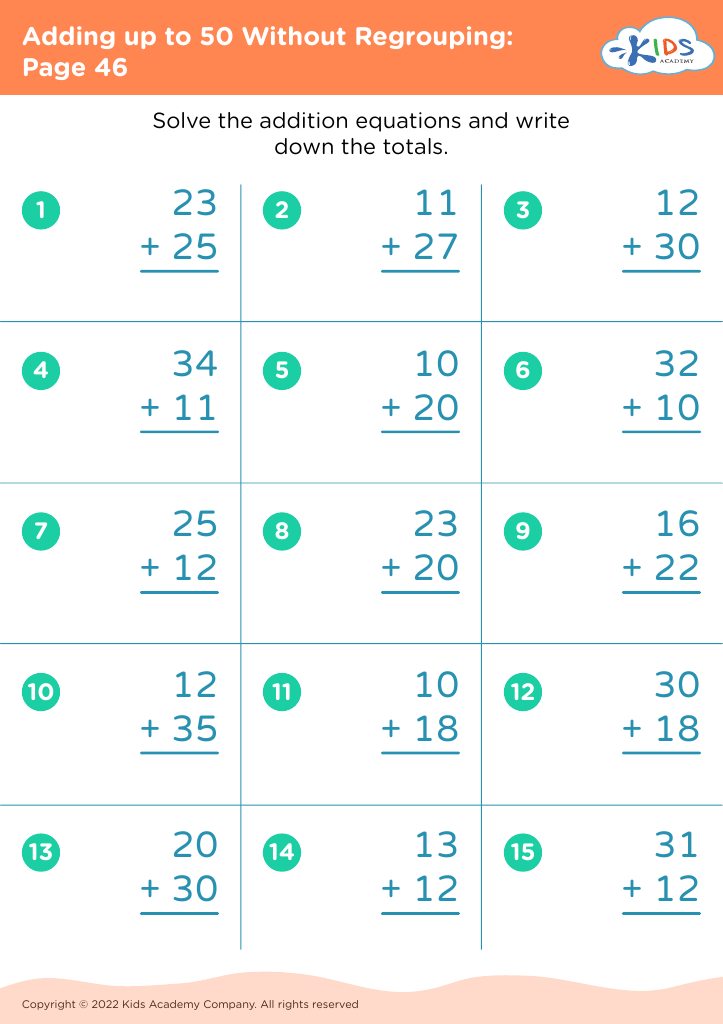Shape identification Math Worksheets for Ages 6-8
31 filtered results
-
From - To
Explore our engaging Shape Identification Math Worksheets tailored for children aged 6-8! These worksheets are designed to enhance your child's understanding of various shapes through fun and interactive activities. Our comprehensive collection includes tracing, coloring, and matching exercises that make learning enjoyable. Each worksheet targets essential skills in shape recognition, helping young learners develop foundational math abilities while boosting their visual perception. Ideal for teachers or parents, these resources are perfect for classroom activities or home learning. Download our shape identification worksheets today and watch your child gain confidence and enjoyment in their mathematical journey!
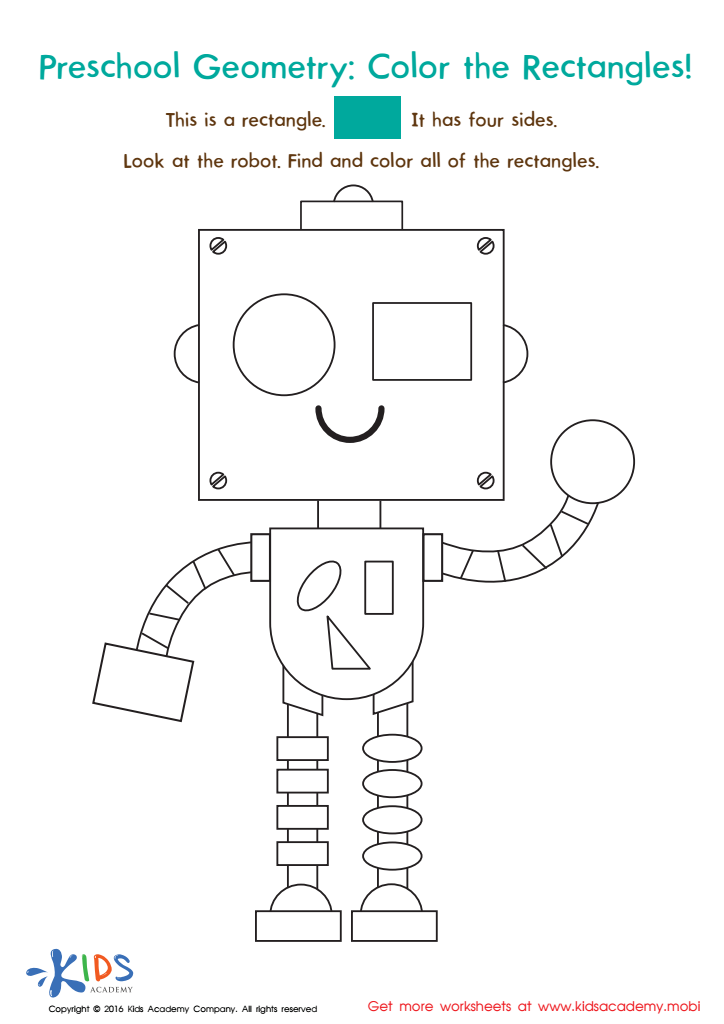

Geometry Worksheet
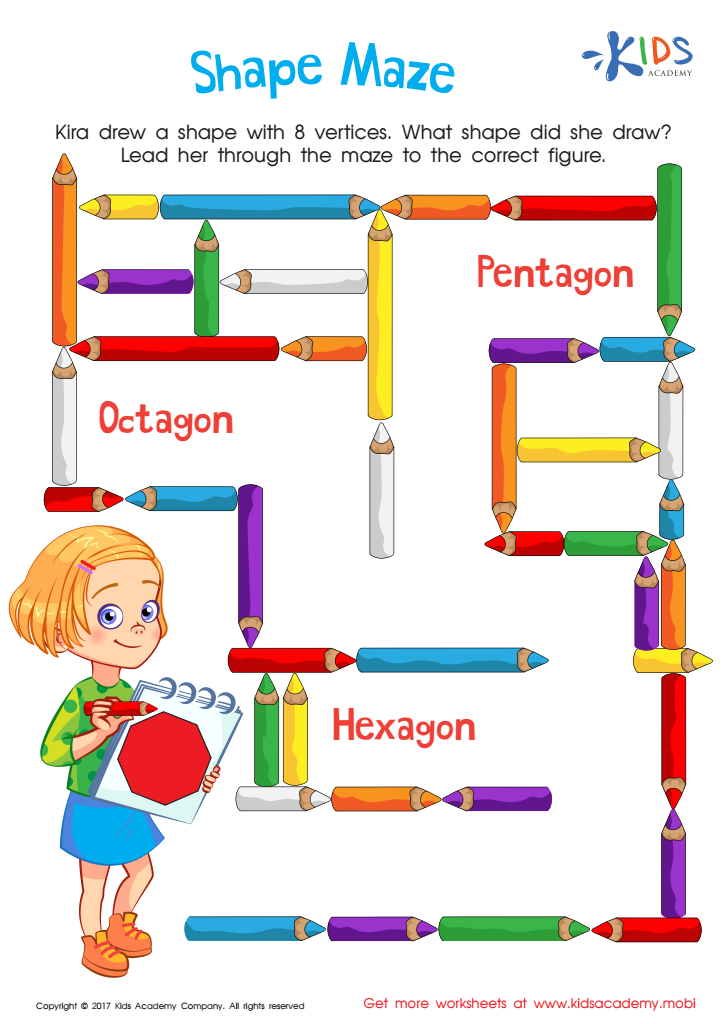

Shape Maze Worksheet
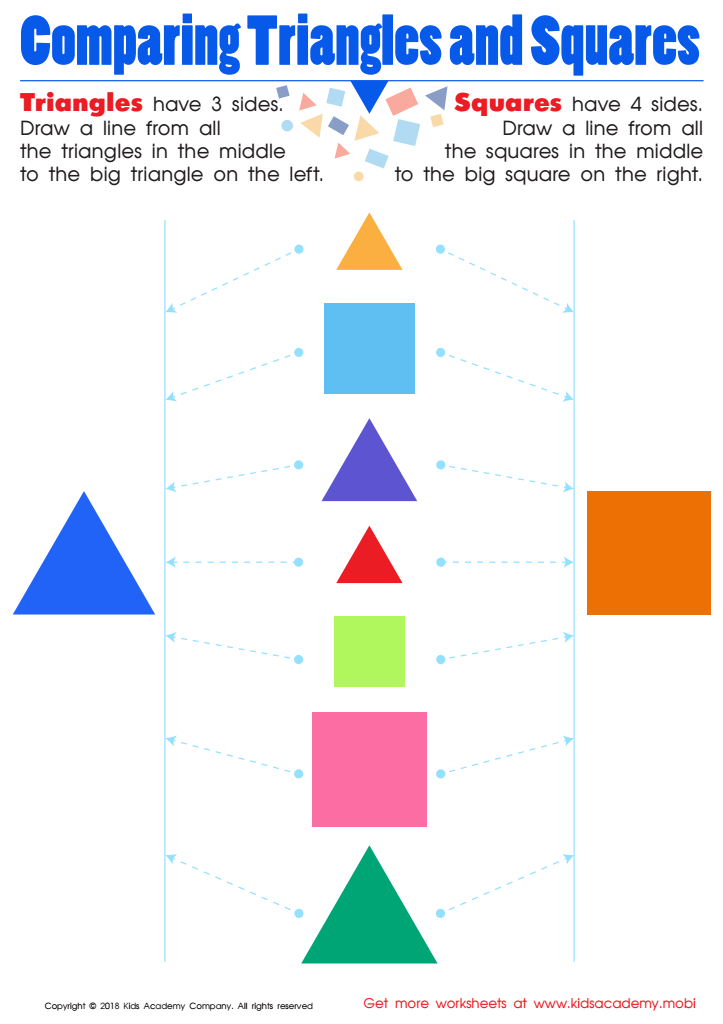

Comparing Triangles Squares Worksheet
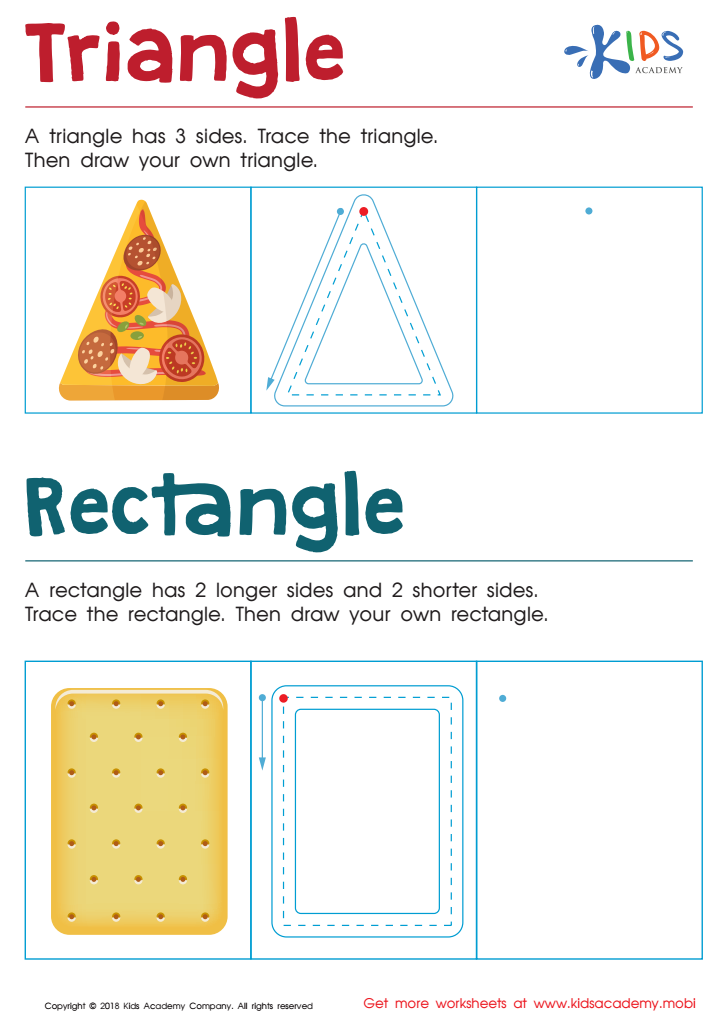

Triangle Rectangle Worksheet
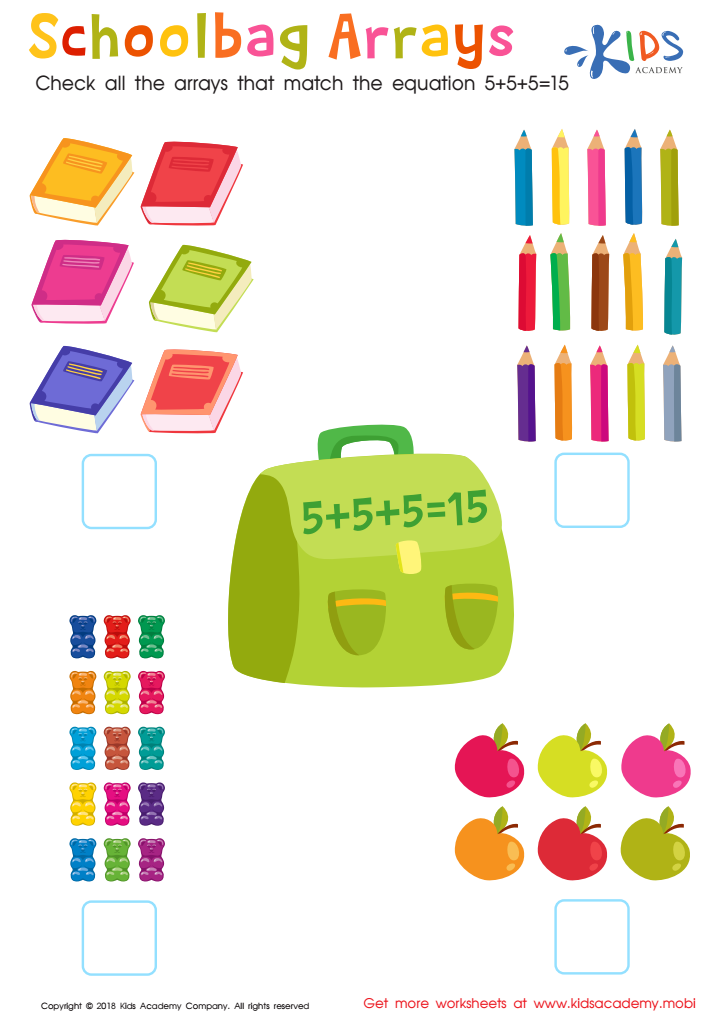

Schoolbag Arrays Worksheet
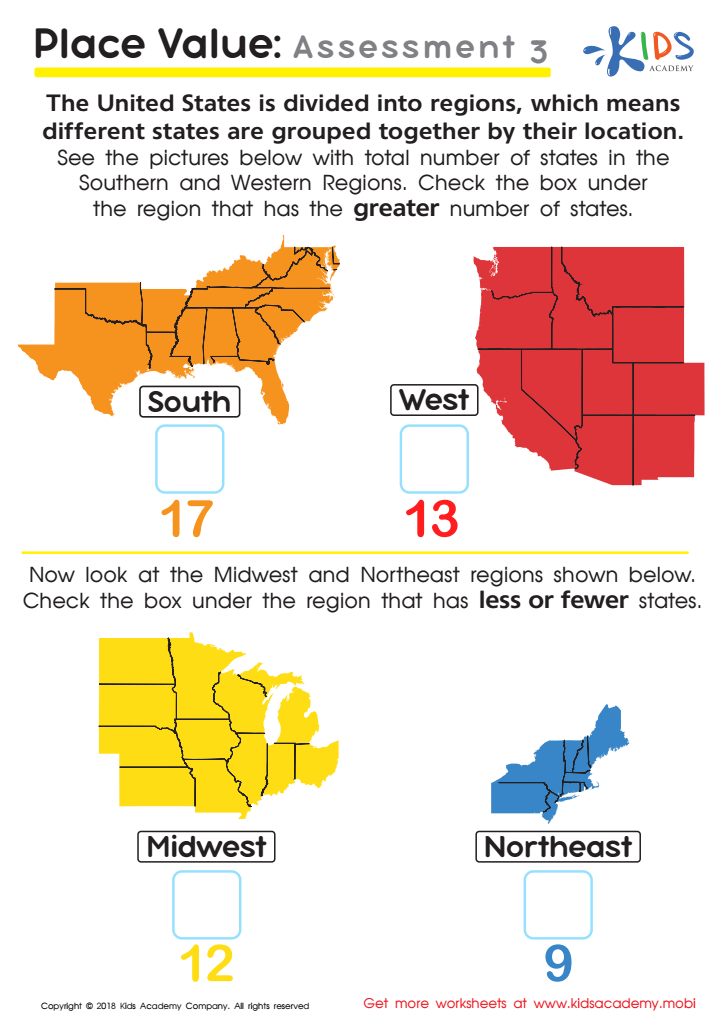

Place Value: Assessment 3 Worksheet
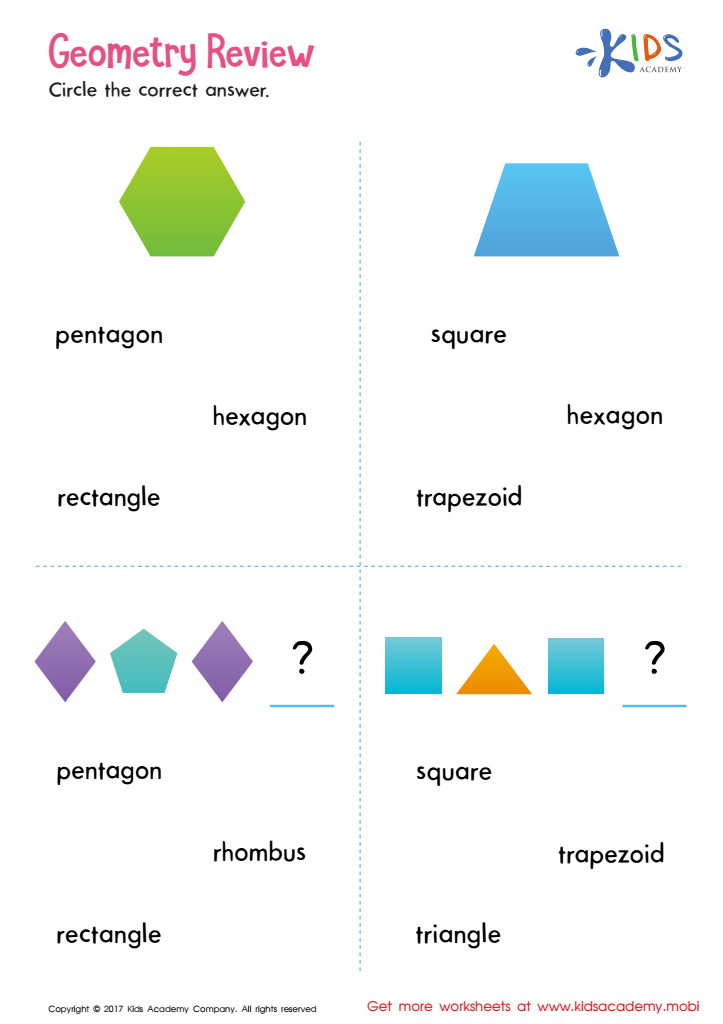

Geometry Review Printable
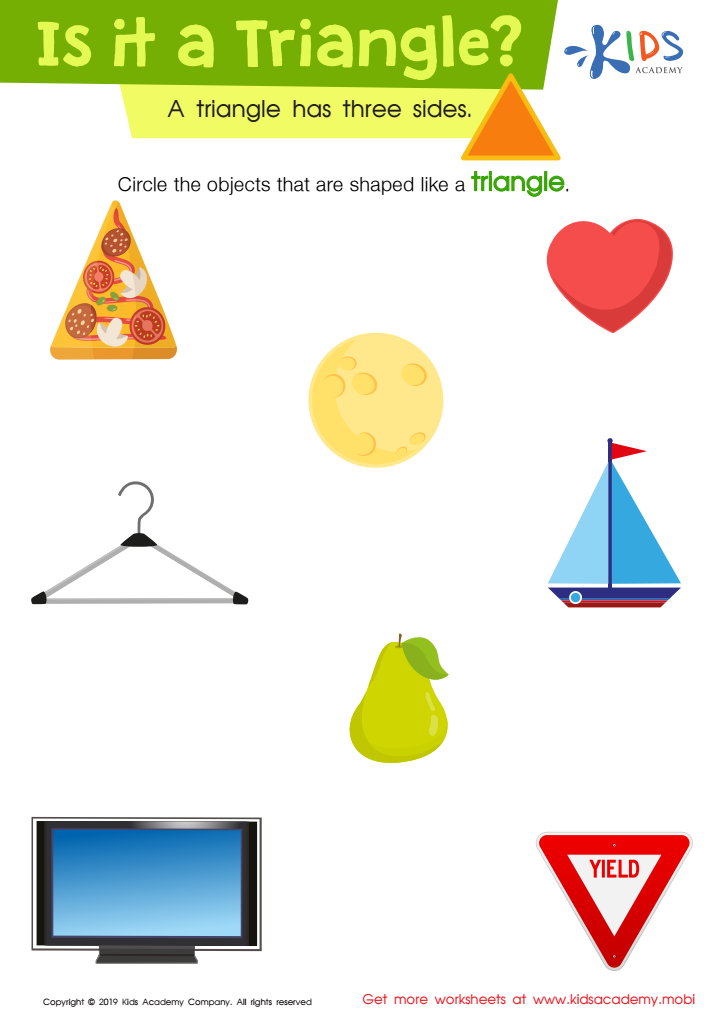

Is It a Triangle? Worksheet
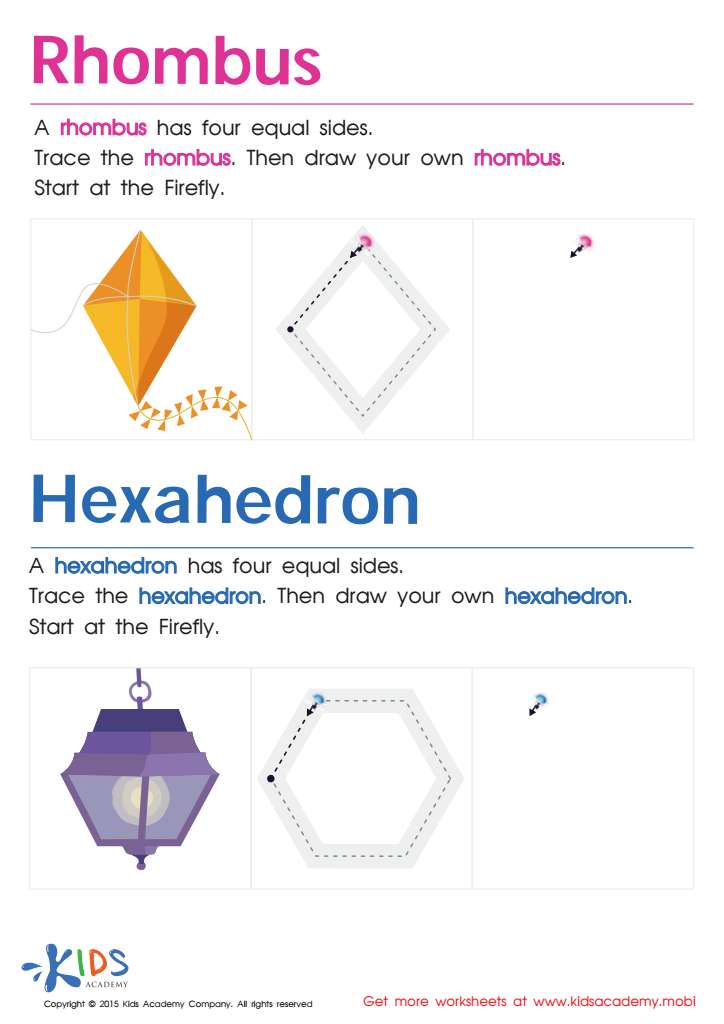

Draw a Rhombus And a Hexahedron Printable
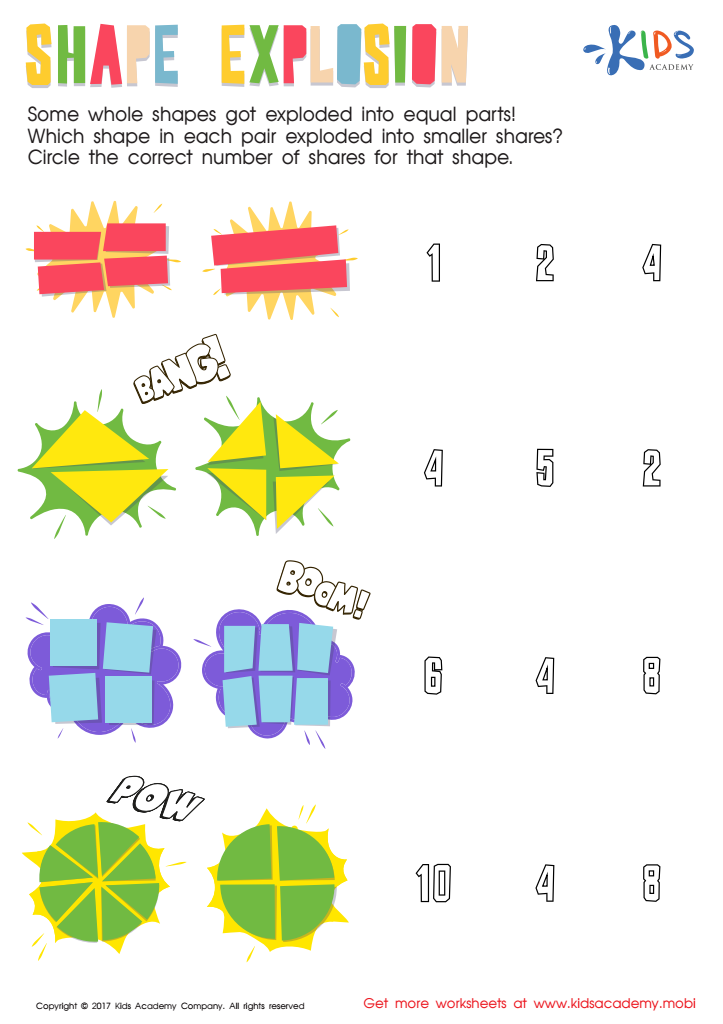

Shape Explosion Worksheet


Number 2 Printable
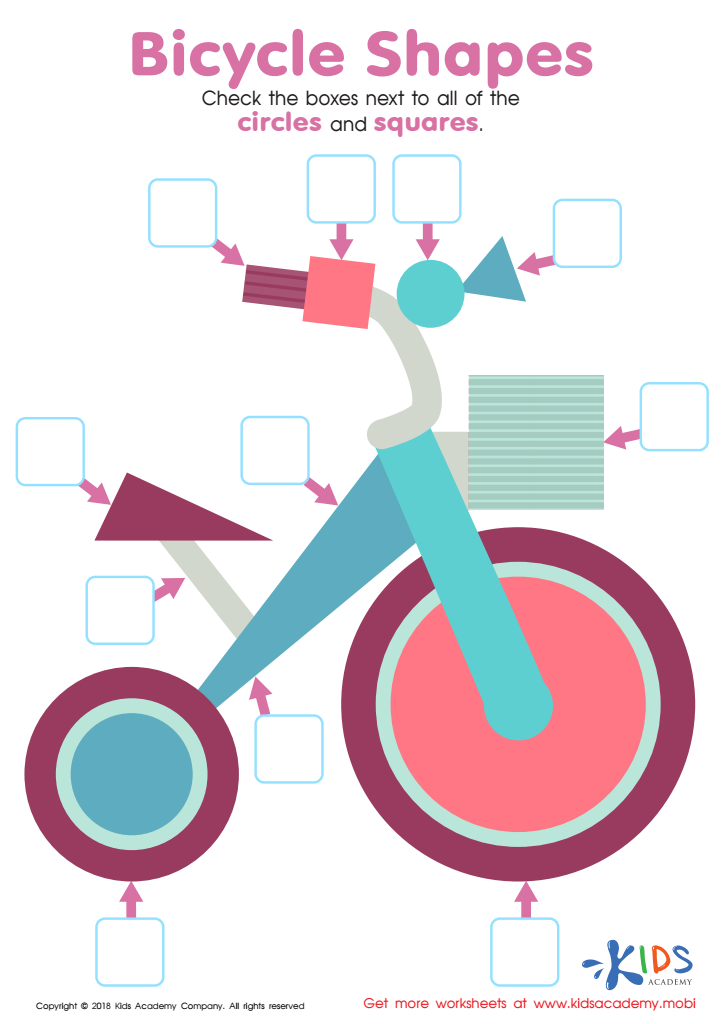

Bicycle Shapes Worksheet
Shape identification is a foundational math skill for children aged 6 to 8 that goes beyond merely recognizing circles, squares, and triangles. Understanding shapes prepares young learners for more complex mathematical concepts, including geometry, measurement, and spatial reasoning. By mastering shape identification, children develop critical thinking skills and the ability to categorize and analyze their environment.
Parents and teachers should prioritize shape identification because it enhances cognitive development and fosters problem-solving abilities essential in math and science. This skill encourages creativity as children learn to visualize and manipulate shapes, enabling them to solve real-world problems, such as understanding architecture and design. Furthermore, shape identification promotes language development as children learn to articulate geometric concepts and describe their surroundings.
Moreover, incorporating shapes into activities allows for playful learning, making math enjoyable while reinforcing fine motor skills through drawing, building, or crafting. Support for shape identification can lead to a stronger math foundation, increasing confidence and establishing a positive attitude towards learning.
In essence, prioritizing shape identification equips children with essential skills that benefit them academically and socially, setting the stage for lifelong learning and success. Thus, parents and teachers play a crucial role in nurturing these foundational abilities.
 Assign to My Students
Assign to My Students




